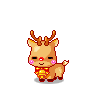I'm pretty sure they used to tho. People born in royalty or any part of royal lineage or high society especially back then were taught how to talk since young age. They were supposed to talk formally with everybody. It's common sense that when you do things a certain way since a young age, especially skills like language etc and remain in that kind of environment where people talk to you like that and you Converse in that same manner, it becomes normal to you. You talk like that with everyone no matter what. So it's not far from possible that these people actually talk like this. That's why accents are a thing, to begin with. So idk why it's hard to believe people talk in certain manners that feel alien to others.
dude you really said "make it simple so I can understand" lmaooo
as someone who works with historical documents, between fictional and official, it's usually writing like this... even things writing by non nobles (where the speech was supposed to be crude) are not similar to our speak now, it still sounds like "floral" bc lalnguage is an eternal state of evolution
... I think you've all sorely misunderstood. (I study historic literature. I'm not saying this out of my ass)
Firstly this is a Korean - - - > English translated text. The form of formal speech doesn't transliterate like it does to English. This is the translators choice, and it represents their preferences NOT it's accuracy. Nor am I saying it's poorly translated, just that it's unnervingly unnatural, as the original text wasn't this obfusciating 100% of the time.
Formal writing does not equate to floral writing, because YES people talk in formal speech in court, and yes, language has changed throughout history. But it's not quite like this. And translated text that get handed down through history tend to get embellished as the language transitions.
In the case of many Asian texts, they are more likely to be polite form speech plus idiom, coupled with era-specific words, and terminology. You can be formal, without being floral all the time.
But what's unusual here is that even in the off time (thought bubbles, mental disturbances, emotional reaction, etc, etc), in the moments where it's supposed to be more natural, who on earth talks like they got 300 words a second to squish into a thought bubble. No one. The choice of diction and transliterated expression is genuinely questionable to me, and there's too much uniformity for every single dialogue, making it all the more unnatural. I can see thus being used for something like a translation set for anecdotal folktales, but not for a webtoon.
I'm not saying to dumb it down, I'm just saying it's overly pompous.
Let's just chalk it off to me not having a preference for this translator, because I've read way better historical translations.
Hard agree with Op. Especially since this webtoon was originally written in mostly modern Korean vernancular. Not even in slightly older middle age Korean or Jeju, which is entirely a different language all together. It gives no indication of any specific era. And since for asian languages that have formal tenses of word forms versus English that doesn't have such a thing, there's no way to directly translate formality. so all these more uncommon or peppery English buffer words is a very Western interpretation. I think it just makes the reading experience more cumbersome... Since reading it in Korean would actually be easier.


Well I started reading outta curiosity for the plot but...whoever translated this is out of their minds lmao. I understand wanting to use more "floral language" for a historical for some elegance but frankly no one talks this way outside of formal occasions. Speaking formally all the time is a little bit much, when most speak crudely, with some idioms thrown in for slang.